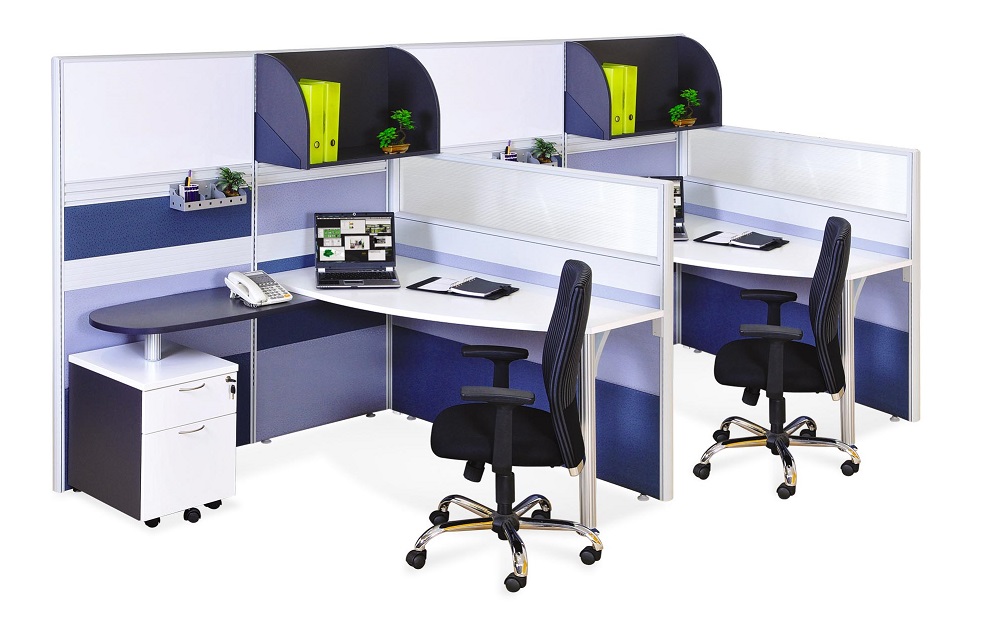In today's digital age, having a strong online presence is crucial for businesses to succeed.…

Cubicle Etiquette: Thriving in a Shared Workspace
In today’s fast-paced corporate world, shared workspaces have become the norm. Cubicles, once seen as small, nondescript boxes, are now bustling hubs of productivity. However, to maintain harmony in these shared spaces, it’s crucial to follow the unspoken rules of cubicle etiquette. Here’s a comprehensive guide to help you thrive in your shared workspace.
Respect Personal Space Each cubicle is a person’s mini-kingdom. Just as you wouldn’t barge into someone’s house unannounced, always knock or politely announce your presence before entering a colleague’s cubicle. This simple gesture shows respect for their personal space and can prevent awkward or intrusive encounters.
Keep Noise Levels in Check One of the primary challenges of shared workspaces is noise. Conversations, phone calls, and noisy gadgets can be disruptive. Invest in noise-cancelling headphones, keep your phone on vibrate, and use hushed tones when discussing work-related matters. Save the lively conversations for break areas or designated meeting spaces.
Odor Consideration Unpleasant odors, whether from food, strong perfumes, or pungent lunches, can make your cubicle office neighbor’s life uncomfortable. Be mindful of what you bring to your workspace, and try to keep it neutral. If you have a strong odor concern, consider discussing it with your coworker in a tactful manner.
Cleanliness is Key A cluttered cubicle can be distracting and hinder productivity. Maintain a clean and organized workspace. Regularly declutter your desk, empty your trash can, and wipe down surfaces. A tidy workspace not only improves your own focus but also demonstrates respect for shared spaces.
Mind Your Personal Calls Personal calls should be kept to a minimum during work hours. If you must take a call, step away from your desk or go to a designated phone area. Loud personal conversations can be bothersome to your colleagues and may come off as unprofessional.
Use Headphones for Music If you enjoy listening to music while working, use headphones. Your taste in music might not align with your coworkers’, and what relaxes you could be a source of irritation to someone else. Keep the volume at a level where only you can hear it.
Be Mindful of Meetings If you have a meeting in your cubicle, make sure your colleagues are aware of it. Post a note or send out a calendar invite to notify them of the time and duration. This way, they can plan their work around your meeting and won’t be caught off guard.
Respect the Boundaries Sometimes, cubicles have low partitions or no partitions at all. In such cases, it’s even more important to respect the boundaries of your coworker’s workspace. Avoid leaning into their area or placing objects on their desk without permission.
Be Mindful of Personal Items When decorating your executive table, be mindful of the items you display. Inspirational quotes, family photos, and personal mementos are great, but avoid items that may be considered offensive or inappropriate by your colleagues. Cubicles should be inclusive and respectful of diverse backgrounds and beliefs.
Handle Food and Drinks with Care Food and drinks in a shared workspace can be a tricky subject. While it’s acceptable to have snacks and beverages, avoid strong-smelling foods or messy meals. Be extra cautious with liquids to prevent spills that could damage documents or electronics.
Offer Help, Not Distractions It’s great to offer assistance when a colleague seems overwhelmed, but make sure you don’t become an added distraction. Offer your help discreetly and be understanding if they decline. It’s the thought that counts.
Maintain Professionalism Even though you’re in a shared workspace, it’s essential to maintain professionalism. Save personal discussions and non-work-related matters for break times or after work hours. Show respect for your colleagues’ time and focus.
Resolve Conflicts Tactfully Inevitably, conflicts may arise in a shared workspace. If you find yourself in a dispute with a colleague, address it tactfully and respectfully. Open communication is key to resolving issues and maintaining a harmonious workspace.
Learn and Adapt Cubicle etiquette may vary from one workplace to another, so take the time to learn the specific expectations and preferences of your coworkers. Be adaptable and willing to adjust your behavior to fit the norms of your particular shared workspace.
In conclusion, thriving in a shared workspace requires a delicate balance of respect, courtesy, and consideration. By following these cubicle etiquette guidelines, you can create a more harmonious and productive work environment for yourself and your colleagues. Remember, the key to success in shared workspaces is to treat others as you would like to be treated and to foster an atmosphere of mutual respect and understanding.




This Post Has 0 Comments